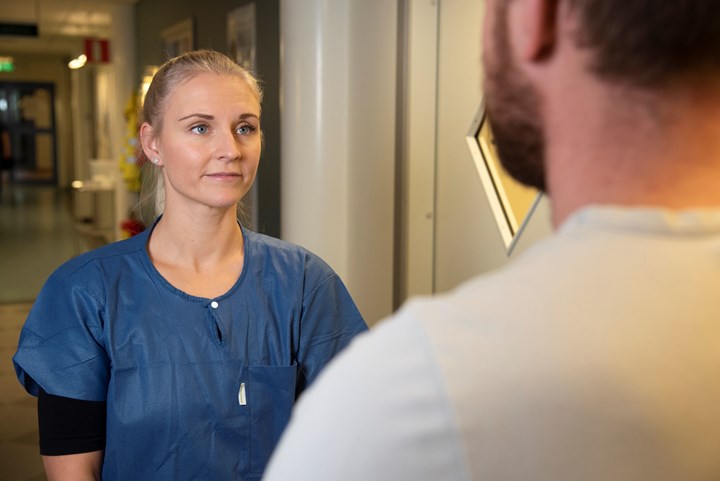Welcome to the School of Health Sciences

The health sciences encompass a variety of disciplines, all of which relate to the application of science to health. The School of Health Sciences at Örebro University is a dynamic and creative environment. We offer attractive degree programmes, courses and research in activity and health, medical diagnostics, nursing science and sports science (management and education).
School of Health Sciences
- 2400 students
- 18 study programmes
- 65 doctoral students
- 3 doctoral programmes
- 250 courses/year
- 200 faculty and staff
- 4 academic divisions
- 8 professorships
- 23 exchange partners
The School of Health Sciences educates future audiologists, biomedical scientists, occupational therapists, nurses, physical education teachers, radiographers, nurse specialists, sport coaches, and sport managers.
Our research is highly transdisciplinary; focusing on health and education in Biomedicine, Disability Research, Medicine, Nursing Science, Occupational Therapy, Public Health Sciences, and Sport Science. Faculty researchers are organized into interdisciplinary research groups and continually explore key topics for study in their respective fields. We collaborate with the health care, social services, and education sectors in Sweden and internationally.
The Schools’ three PhD programs focus on Disability Research, Sports Science, and Medical Science with a specialization in Healthcare sciences.
News
-
Study shows abuse impacts elite gymnasts well after retirement

Abuse and neglect experienced during their active years continue to impact the lives of female elite gymnasts long after their competitive careers have ended. Natalie Barker-Ruchti, sports scientist at Örebro University, says this research will be...
-
False message sent to students
A false email was circulated claiming that students must verify their email address linked to the Blackboard system.
-
Örebro researcher’s innovation can cut healthcare queues: “Unacceptable to wait a year”

Erik Witte, a researcher at Örebro University, has developed an innovative hearing test that could enable screening of suspected hearing loss and assist existing patients in obtaining better-fitting hearing aids.



